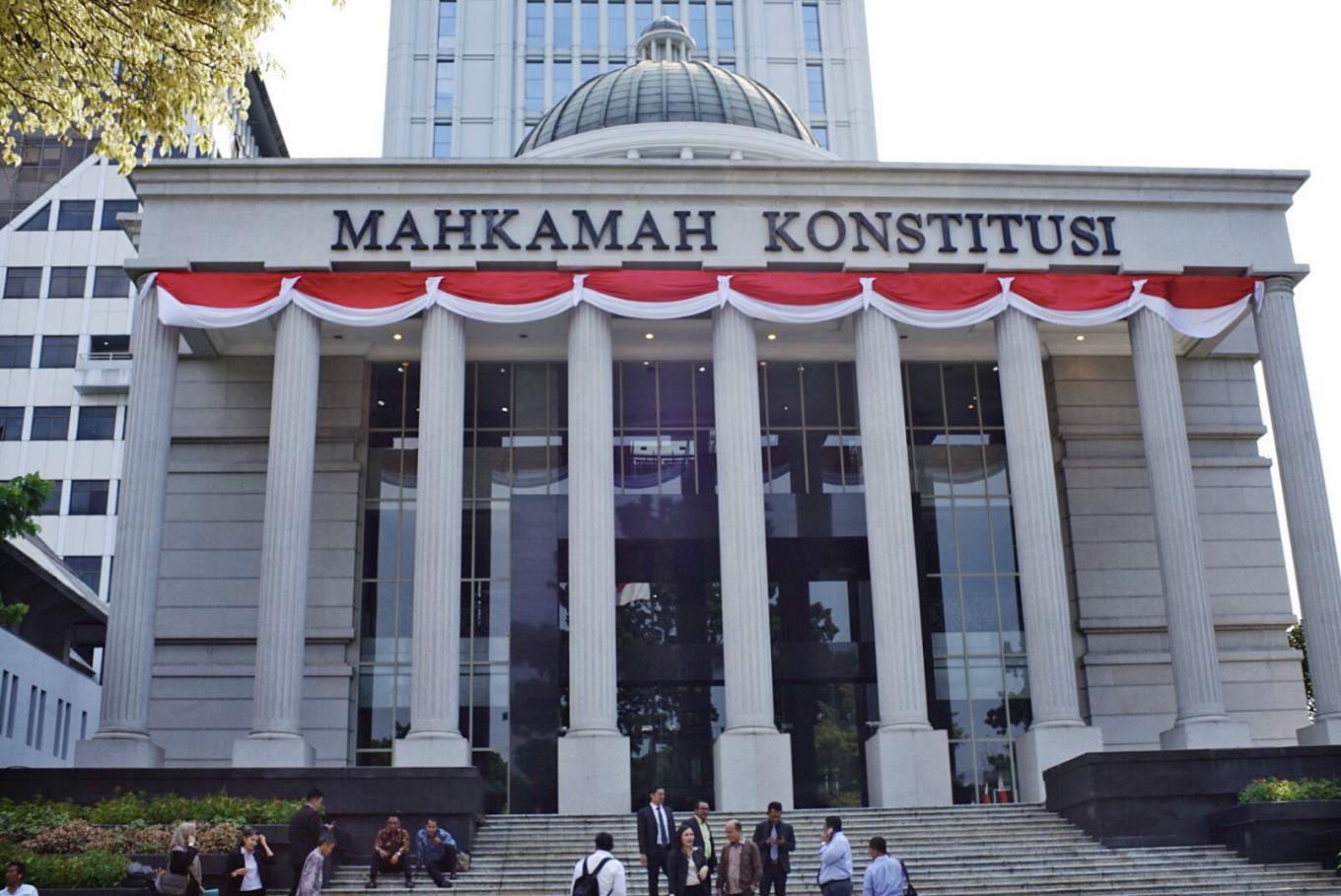Popular Reads
Top Results
Can't find what you're looking for?
View all search resultsPopular Reads
Top Results
Can't find what you're looking for?
View all search resultsConstitutional Court probes why KPK bill got speedy treatment
It took the House, notorious for its poor legislative productivity, just 13 working days from the time the bill was submitted to the time it was endorsed. The move provoked massive demonstrations in Jakarta, tinged with violence, as protesters said the House was conspiring with the government to kill the Corruption Eradication Commission.
Change text size
Gift Premium Articles
to Anyone
T
he Constitutional Court is questioning why the House of Representatives gave the bill to reform the Corruption Eradication Commission (KPK), which was widely opposed by the public, a reading-speed record in September.
The court, which is hearing a petition from seven different groups to revoke the law, asked the House on Monday to provide the recording of the House’s deliberations, the full transcripts and the attendance list of House members.
The new law came into effect in October, rendering the commission ineffective without independence and without the tools it once had in fighting graft. The new law created a new layer above the commission, called the supervisory council, with the power to veto.
It took the House, notorious for its poor legislative productivity, just 13 working-days from the time the bill was submitted to the time it was endorsed. The move provoked massive demonstrations in Jakarta, tinged with violence, as protesters said the House was conspiring with the government to kill the KPK.
President Joko “Jokowi” Widodo met with a group of activists that month, saying he would not sign the bill into law and that when the bill would automatically become law without his signature after one month, he would consider issuing an executive order to annul it.
He never did.
Six groups have sent different petitions to the court demanding the law be annulled. They represent former commissioners of the antigraft agency, activists, university lecturers and students. They took different angles, some claiming the legislative process was flawed, others raised problems with the substance of the new law.
The court, the last hope to save the old KPK, decided to hear all seven petitions at once, looking at the procedure and the substance of the legislation.
On Monday, judge Wahiduddin Adams, a member of the six-judge panel, expressed skepticism about how the House could have completed the bill in 13 days.
“If lawmakers had worked day and night, it is fine,” he told the hearing attended by representatives of the petitioners and lawyers of the government and the House.
The court would also look into how much public consultation the House engaged in while deliberating over the bill, including whether it consulted the commissioners of the antigraft agency.
Wahiduddin questioned why President Jokowi did not sign the bill into law, which he saw as an anomaly. “The President had promised to review the bill. What happened? The government should explain it to the public,” he said.
He noted that the last time this happened was in 2003 when then president Megawati Soekarnoputri refused to sign a bill on advocacy. In 2002, Megawati also refused to sign a broadcasting bill.
On the substance of the new law, the panel of judges questioned the role of the new supervisory council that it said overlaps with the work of the police and the Attorney General’s Office, which also investigate corruption cases.
Agus Hariadi, the lawyer representing the government, said the new law complied with the United Nations Convention against Corruption treaty.
Representing the House, Arteria Dahlan denied the petitioners’ claim of a lack of public consultation in deliberating over the bill, pointing out that the discussions went as far back as 2008.
Arteria questioned the legal standing of all seven groups of plaintiffs in filing the petitions with the court since their work had no direct relation to the new law.
“While we respect every citizen’s right, we should respect the sanctity of the court. Only petitioners who have legal standing and qualified material should be allowed,” he said.
A lawyer for one of the petitioners, Saor Siagiana, however, said any citizen had the legal right to oppose the new law “because corruption affects us all”. (mfp)










